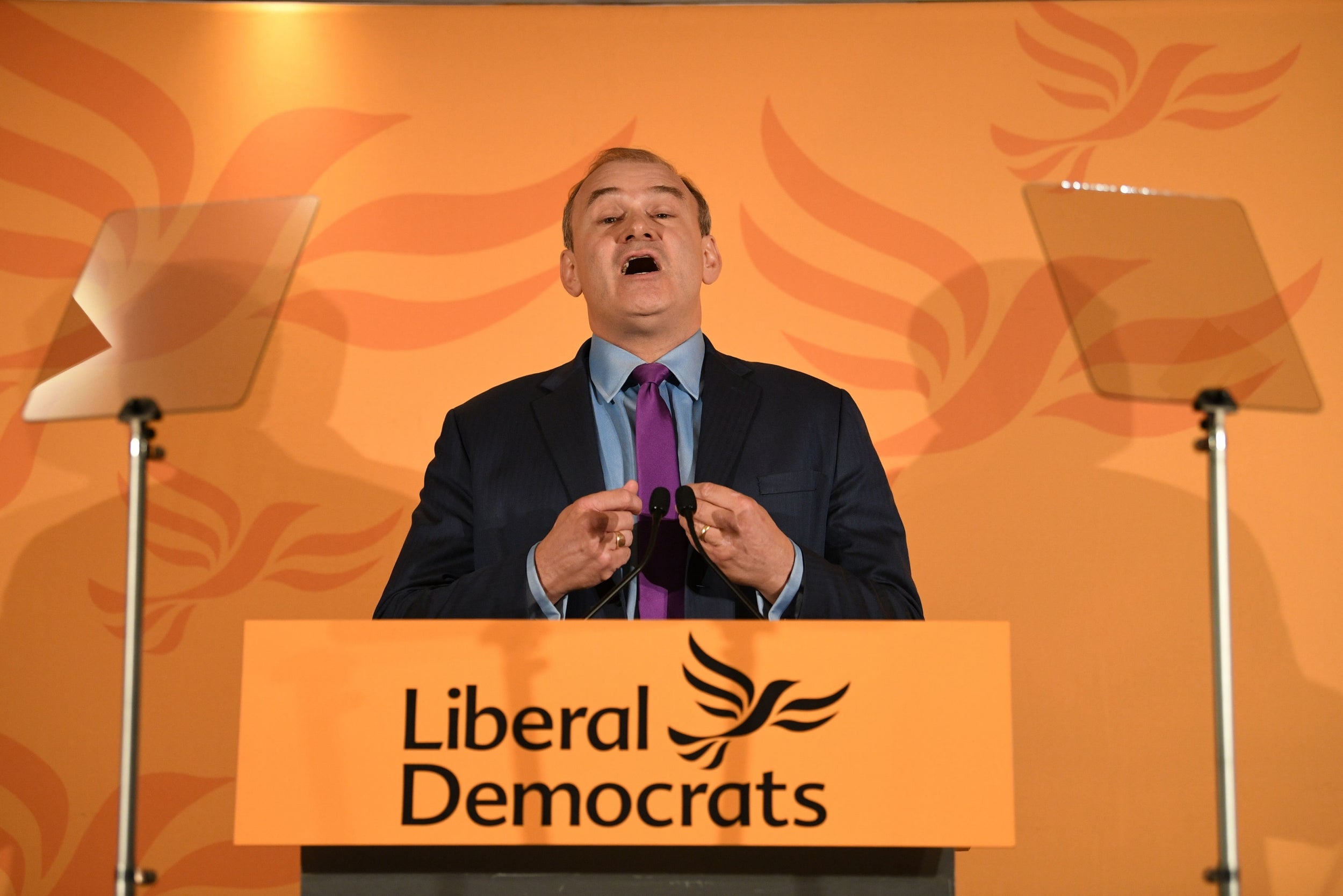Keir Starmer and Ed Davey need each other to succeed – although they won’t admit it in public
After four defeats, most Labour members want to win; that is why they elected Starmer. So most would likely swallow such cooperation with the Lib Dems, writes Andrew Grice


The Liberal Democrats have chosen competence and safety over radicalism and risk by electing Ed Davey rather than Layla Moran. Moran wanted a shift to the left and, after an energetic campaign, should be given a wide-ranging role to bang the party’s drum.
At first glance, Davey appears too similar to another Sir – Keir Starmer – and so might be squeezed out in a battle for the same centre ground voters. Starmer has surely cornered the market on “competence”, his main line of attack against Boris Johnson.
But that would be the wrong reading of the unenviable position Davey inherits – a party with 11 MPs and flatlining at about 6 per cent in the opinion polls. The Lib Dems still have a vital role to play in ending Tory hegemony.
Although they won’t admit it in public, Starmer and Davey need each other to succeed. The Lib Dems’ appeal to soft Tory voters is always stronger when Labour is doing well. Jeremy Corbyn was bad news for the Lib Dems; at last December’s election, many Tories saw Brexit as less of a risk than PM Corbyn. They were also repelled by Jo Swinson’s foolish pledge to cancel Brexit without a second referendum. After the Labour leader’s impressive start, we can see it will be much harder for the Tories to scare voters about PM Starmer, though he still has much work to do to improve the party’s brand image.
Labour will need the Lib Dems to do well to have any hope of climbing its proverbial mountain in one go. If Davey’s party landed 20 or so Tory seats, Starmer might just be in with a chance. The Lib Dems are now in second place in 91 constituencies (up from 31 in 2017), 80 of them held by the Tories. They are good at building on local election successes and have 120,000 grassroots members, though Davey was right to outline in his acceptance speech the party’s need to find “national relevance”.
In a BBC interview on Friday, Davey was coy about future relations with Labour, saying his first tasks were to listen to and reconnect with voters. But he acknowledged the electoral “maths” and that his top targets are Tory-held seats.
Some Labour members and trade unions would oppose cosying up to the Lib Dems. Some haven’t forgiven them for rashly allowing Johnson his December election, or hopping into bed with the Tories in 2010; nor have some voters. Davey’s role as a Cabinet minister in the coalition government is a reminder of a period many Lib Dems would rather forget.
It emerged this week in evidence to a Labour inquiry into claims that its HQ undermined Corbyn’s 2017 election campaign, that in 2019 the Lib Dems floated the idea of the party and Labour not standing against each other in 50 seats to boost the chances of denying Johnson an overall majority. Characteristically, Corbyn’s office replied: “We don’t do deals with the Lib Dems. If people are so desperate to stay in the EU rather than have a socialist government that’s their choice.”
Starmer is less tribal than Corbyn. He and Davey are grown-ups. I doubt they will agree a formal electoral pact like the one rejected by Corbyn. These are hard to deliver and alienate local party workers. Although their target parliamentary seats complement each other, Labour and the Lib Dems go head-to-head on some local authorities.
But I think the two leaders will agree an informal non-aggression pact, under which the two progressive parties would concentrate their fire on the Tories rather than kick lumps out of each other, and not channel resources into the other party’s winnable Tory seats. This would make sense, notably in Scotland, where both parties need to bounce back.
Davey has removed one obstacle to such cooperation by saying he wants to “chuck” Johnson out of Downing Street at the next election, ending the Lib Dem strategy of equidistance. Starmer would not shout about it from the rooftops, but knows an informal understanding offers his best hope of becoming prime minister. After four defeats, most Labour members want to win; that is why they elected Starmer. So most would likely swallow such cooperation with the Lib Dems. The policy differences between the parties are not vast. Indeed, a nod to the Lib Dems in their Tory target seats would make it easier for Starmer to make a soft left rather than a centrist, Blairite pitch; there is little appetite within Labour to ditch the main planks of Corbyn’s policy agenda.
Some Tories will rub their hands with glee at the prospect of warning their supporters: “Vote Lib Dem, get Labour.” But they would be wrong to dismiss the threat posed by an informal Lib-Lab pact. After all, a similar arrangement between Tony Blair and Paddy Ashdown ended a long period of Tory rule in 1997.
Join our commenting forum
Join thought-provoking conversations, follow other Independent readers and see their replies
Comments